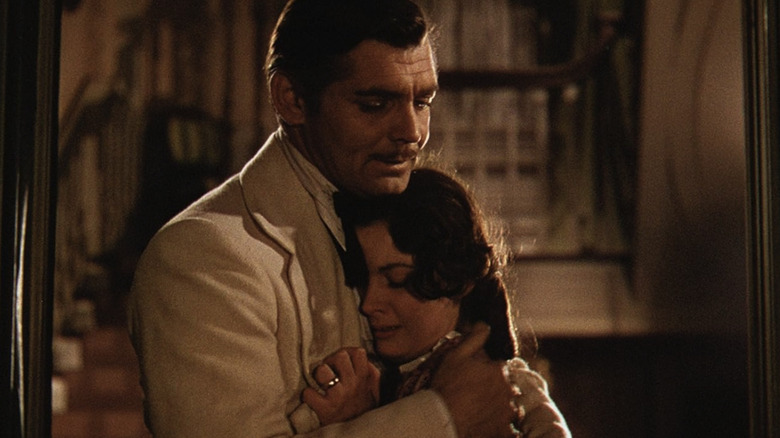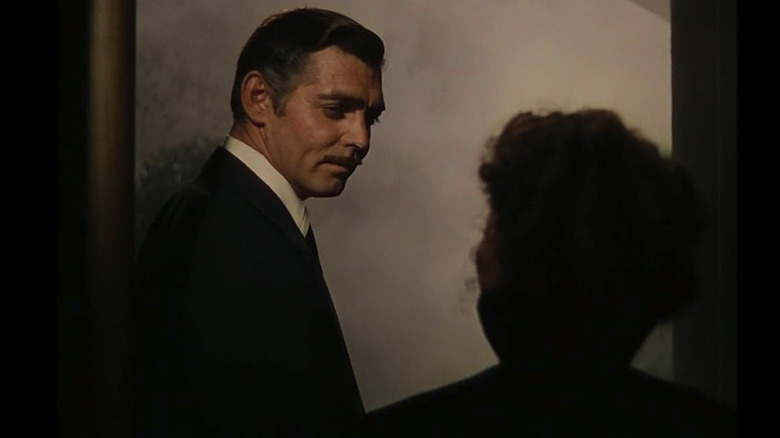Why Gone With The Wind's Producer Initially Turned Down The Classic Film
David O. Selznick, one of the most famous producers in Hollywood history, almost passed on his most famous movie.
According to Time, Selznick's story editor, Kay Brown, found author Margaret Mitchell's novel "Gone with the Wind" and tried to convince the producer to adapt it into a movie. (You can read her actual note to him here.) But when Selznick first read the synopsis and realized it was a Civil War story, he passed on the project, reportedly because it was too similar to a movie he had recently made, 1935's "So Red the Rose," which was a financial disappointment. No trailers for "So Red the Rose" are available on YouTube or any other legal streaming platform, but this tribute video contains some footage from the film. Watching that, it's easy to see why Selznick may have been hesitant to greenlight "Gone with the Wind" — there are plenty of surface-level similarities, from the costumes to the character archetypes to the locales.
Thankfully, Brown and Selznick's primary investor, John Hay Whitney, was able to convince him to change his mind and option the rights to the novel anyway. The rest, as they say, is history.
Selznick (eventually) made the right choice with Gone with the Wind
Mitchell won the Pulitzer Prize for Fiction for writing the "Gone with the Wind" novel, and it went on to become a bestseller. The eventual film adaptation starred Vivien Leigh, Clark Gable, Hattie McDaniel, and Olivia de Havilland (who lived to be 104 years old). The movie was nominated for 13 Academy Awards and won eight, including Best Picture (it also won an honorary Oscar for its use of color). Through a series of re-releases, it eventually became the world's biggest box office juggernaut; adjusted for inflation, it's still the highest-grossing movie in history. In an era in which the monoculture was more prevalent than it is now, "Gone with the Wind" was a full-blown sensation.
Even factoring in some of the movie's questionable or downright offensive subject matter — aspects which are now addressed in a pre-film video intro on the Max streaming service – it's hard to argue that Selznick didn't make the right call in changing his mind and scooping up the movie rights when he did, since the film went on to basically define his already-stellar career and become one of the most enduring classics the silver screen has ever known.
"Gone with the Wind" ranked number three on our list of the best Clark Gable films; check out the rest if you're interested in a deeper exploration of the actor's career. (I'm especially fond of "Manhattan Melodrama," which was also produced by Selznick.)

